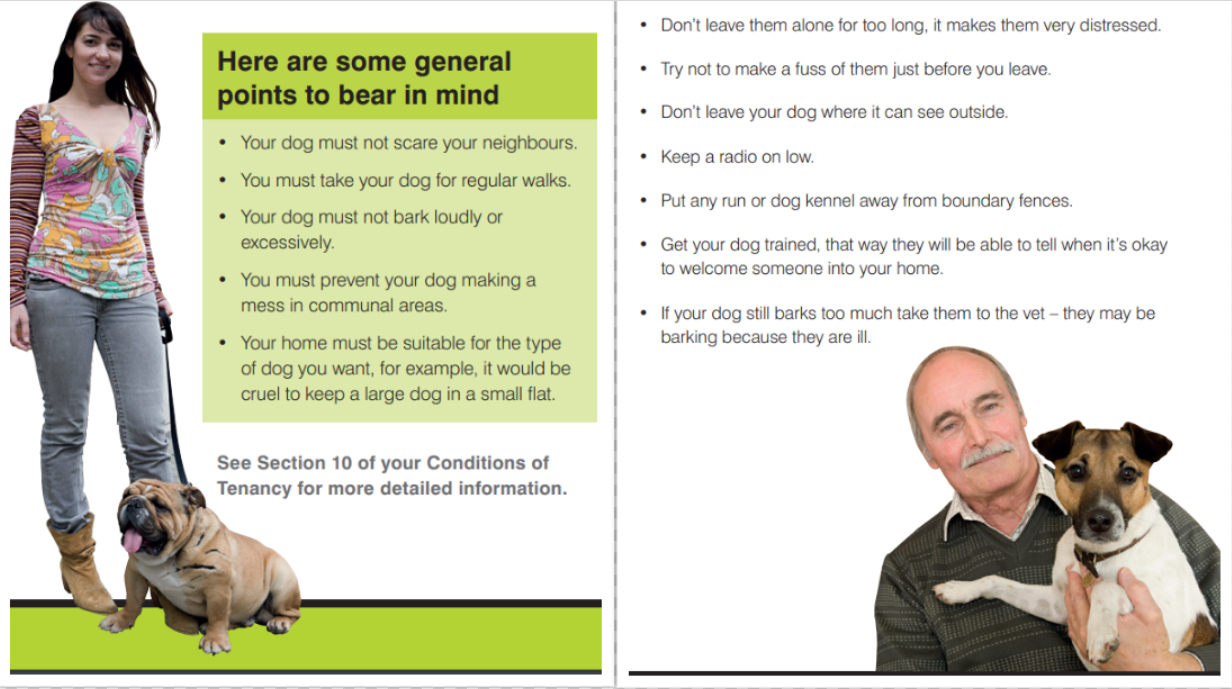In the UK, the rules regarding pet ownership in council homes vary depending on the local authority. Generally, councils allow tenants to keep pets but impose restrictions to maintain a harmonious living environment for all residents. Each council sets its own limits on the number and type of animals allowed. While some councils have no specific restrictions, others may permit only one or two pets per household.
However, it is worth noting that certain factors such as property size, outdoor space availability, and the nature of the animal are taken into consideration when determining these limits. Some councils may also require tenants to register their pets and ensure they are well-cared for and not causing any nuisance or disturbance within the community. It is recommended that residents consult their local authority's guidelines or speak with a housing officer to obtain accurate information regarding pet ownership in council homes.
Leeds City Council
The
Policy on Pets in Council Houses, established by Leeds City Council, stipulates that tenants, as well as anyone residing with or visiting the property, are strictly prohibited from keeping or bringing any animals onto or in close proximity to the premises, unless explicit written permission has been obtained. In the event that permission is granted, tenants are permitted to keep a maximum of
two cats or dogs, totaling no more than
two animals. However, they may be allowed to keep a greater number of smaller animals, such as rodents, birds, reptiles, or fish, provided that the council deems the quantity to be reasonable.
Haringey Council
In Haringey Council homes, tenants are permitted to have
one cat or one dog, as well as fish and small caged animals or birds typically kept as pets, such as hamsters or budgies, without seeking prior permission. However, if you wish to keep an extra dog or cat, you must have owned the pet prior to 1 April 1996 and held a council tenancy at that time. This
policy ensures that tenants can enjoy the companionship of their furry or feathered friends while maintaining a harmonious living environment within Haringey council homes.
City of Lincoln Council
If you are a resident of Lincoln, England, it is a requirement stated in your tenancy agreement that you must seek and obtain written permission prior to keeping any pets within your home. This rule extends to pets that you may intend to keep outdoors, whether in cages or enclosures. However, it is important to note that permission is not necessary if you have a registered assistant, such as a guide dog. Nevertheless, it is still mandatory to inform the council about the presence of such an assistant.
In most cases, the
council grants permission for the keeping of up to
two domestic pets, which may include domestic cats and dogs, as well as other small animals like rabbits, hamsters, guinea pigs, mice, gerbils, and rats.
Additionally, permission is also granted for the keeping of small birds such as budgerigars and canaries, fish, non-poisonous insects and spiders, as well as non-poisonous snakes and reptiles that are under two feet in length when fully grown.
However, it is crucial to ensure that small animals such as rabbits, guinea pigs, rats, mice, gerbils, and hamsters are kept in manageable numbers.
Royal Borough of Greenwich
If you are a council tenant or leaseholder in the Royal Borough of Greenwich, you must inform the council of your intention to keep a dog or additional dogs in your council home. It is crucial to note that bringing a dog to reside in the property without obtaining written permission from the council is a violation of your tenancy
conditions.
Typically, the council grants permission for one dog, particularly if your property includes a garden. However, if you desire to have more than one dog, the council will consider factors such as the size of the property and the number of dogs you wish to keep.
To ensure compliance with the regulations and maintain a harmonious living environment, it is essential to seek written permission from the council before introducing a dog into your council home.
Birmingham City Council
If you reside in Birmingham, England as a council tenant, it is highly recommended to seek guidance from your local housing team regarding the suitability of the dog you intend to bring into your home. In the event that you wish to have more than
two dogs, it is imperative to obtain written permission from the
council. Simply compose a letter addressed to your local housing team, clearly stating the number and breed of dogs you desire to have. Rest assured, they will promptly respond in writing, confirming whether your plans align with their regulations. In the event that your request cannot be granted, the housing team will provide a detailed explanation for their decision.
Aberdeenshire Council
In Aberdeenshire, UK, residents are allowed to keep one domestic pet without seeking permission, provided they do not reside in a flat or sheltered housing property. However, if you happen to live in one of these types of accommodations and desire to have a pet, it is necessary to obtain written permission from the
local council. Similarly, if you wish to keep more than one pet, regardless of the type of dwelling, written consent from the council is required.
The council permits ownership of various animals, including dogs, cats, birds, fish, rodents, rabbits, small non-poisonous reptiles, as well as non-poisonous insects or amphibians.
Banned Dog Breeds in The UK
In the UK, certain breeds of dogs and cats have been banned due to concerns over public safety and animal welfare. These bans aim to reduce the risk of incidents involving aggressive or dangerous behavior from these particular breeds. The Dangerous Dogs Act 1991 lists four specific types of dogs that are prohibited: Pit Bull Terrier, Japanese Tosa, Dogo Argentino, and Fila Brasileiro. These breeds are considered potentially violent and pose a significant threat to humans and other animals.



